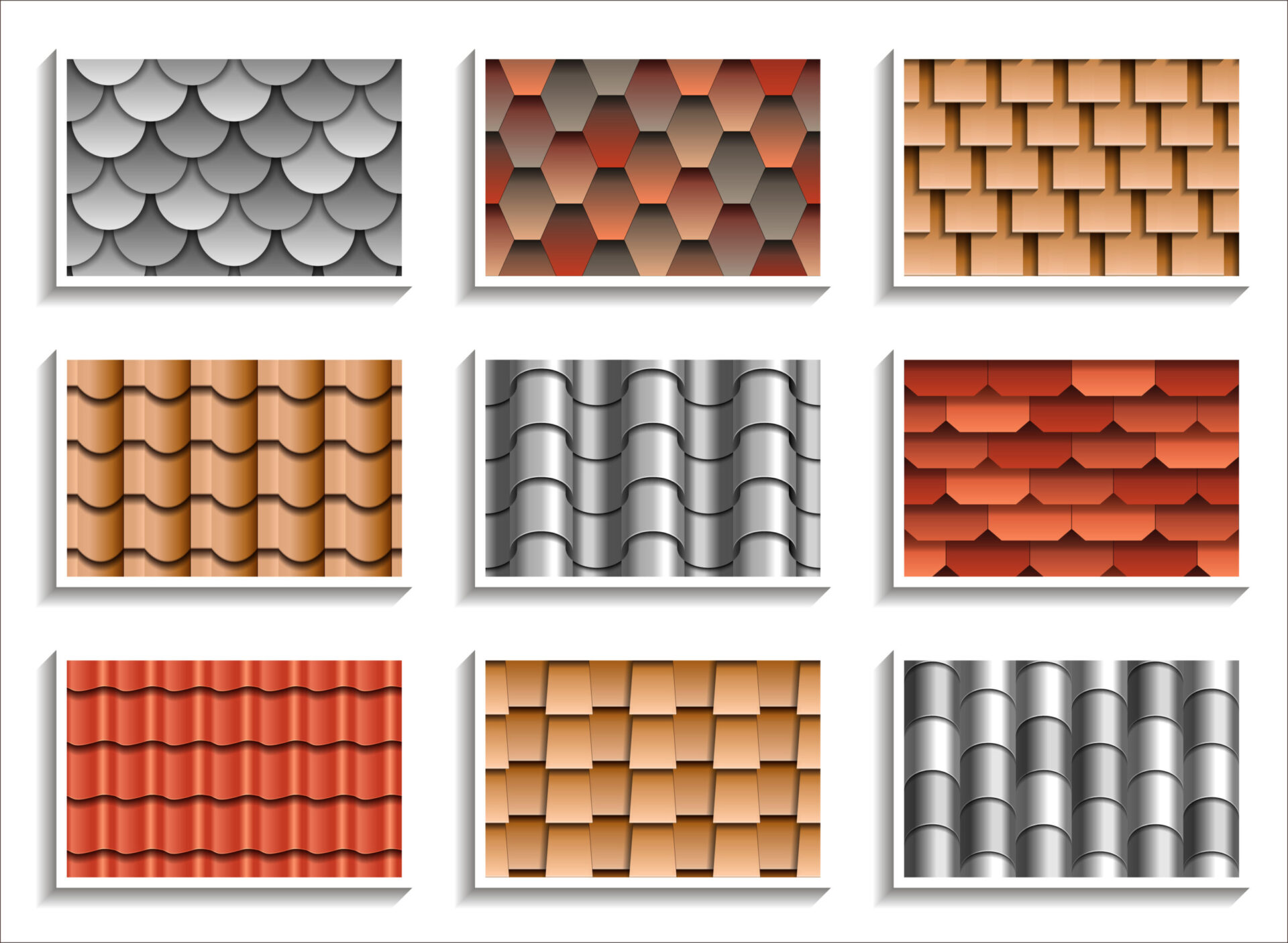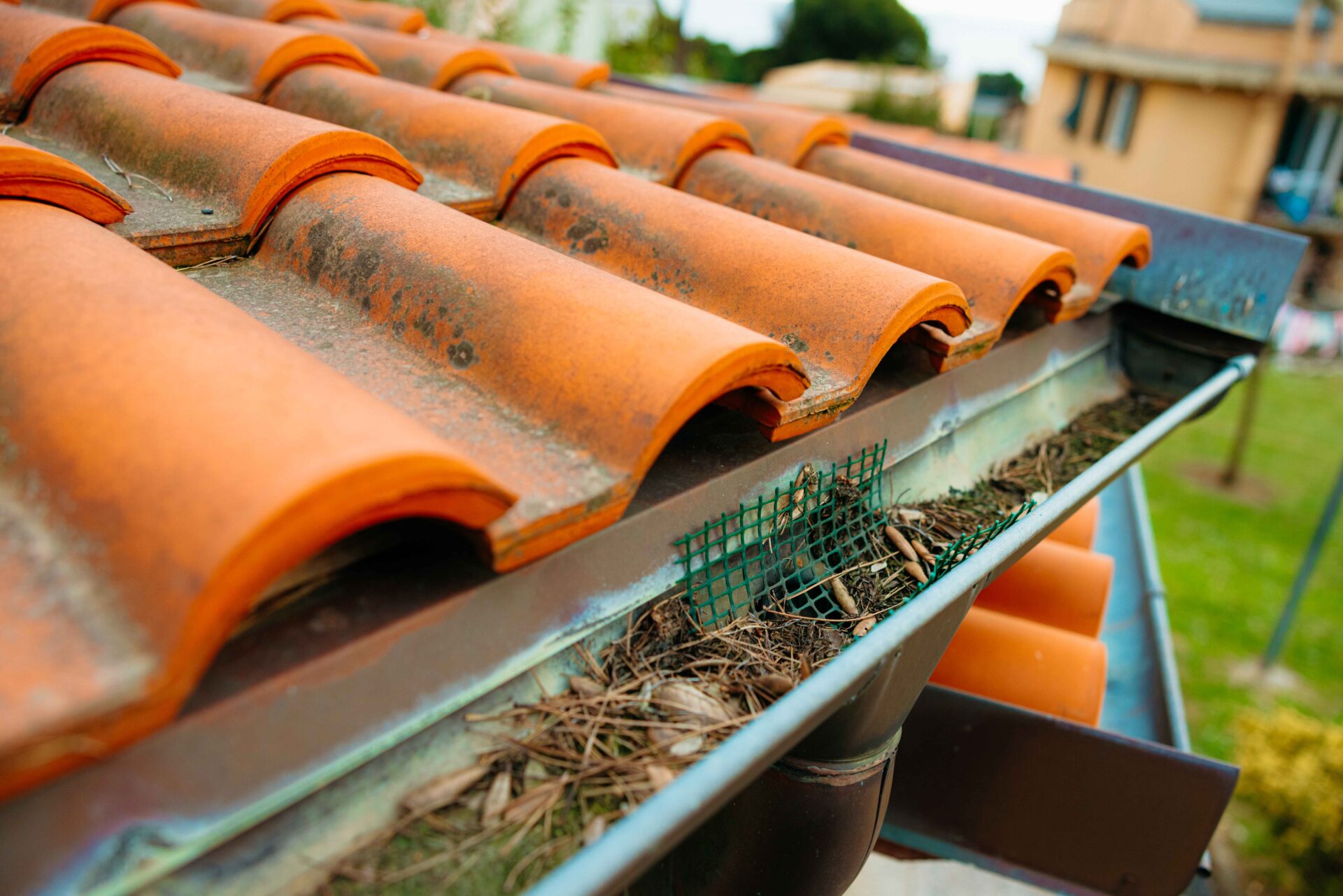
How Clogged Gutters can lead to mosquito problems in Summer
Summer in Vancouver brings warmer temperatures, longer evenings, and the perfect conditions for outdoor gatherings. Unfortunately, it also creates ideal conditions for mosquito breeding. One often overlooked yet significant breeding ground for mosquitoes is clogged gutters. Understanding this link and taking preventative measures can significantly reduce mosquito-related issues around your home.
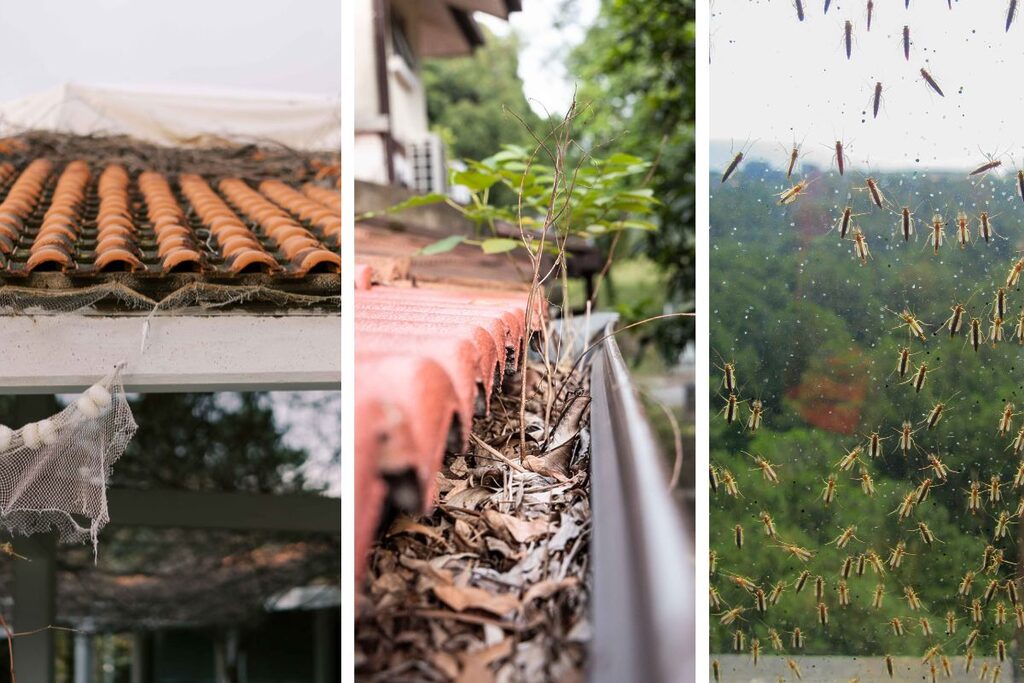
Why Do Mosquitoes Breed in Clogged Gutters?
Mosquitoes need stagnant water to lay their eggs, and clogged gutters offer the perfect environment. Female mosquitoes require just a tiny amount of stagnant water—no more than a small puddle—to lay hundreds of eggs. Blocked gutters hold water from rainfall, dew, and condensation, creating multiple pools suitable for mosquito breeding.
Conditions in Vancouver Contributing to Clogged Gutters
Several factors unique to the Vancouver area contribute to clogged gutters:
- Heavy Rainfall: Vancouver’s frequent rainfall during spring and early summer can rapidly fill gutters. If gutters are blocked, water won’t drain efficiently.
- Lush Vegetation: Vancouver’s dense greenery, including deciduous and evergreen trees, frequently drops leaves, twigs, pine needles, and seeds, quickly blocking gutters.
- Roof Debris: Asphalt shingles commonly used in Vancouver homes shed granules over time. These granules settle in gutters, creating sediment layers that trap moisture and organic material.
The Mosquito Life Cycle in Clogged Gutters
Mosquitoes progress through four stages—egg, larva, pupa, and adult—and clogged gutters can support all these stages. Here’s a brief overview:
- Eggs: Mosquito eggs are deposited directly onto the surface of stagnant water or on damp surfaces just above the waterline, where they can survive drying out temporarily.
- Larvae: Eggs hatch into larvae within 24 to 48 hours. Larvae, also known as wigglers, feed on organic debris like decaying leaves, algae, and other organic matter found in gutters.
- Pupae: After about 5 to 10 days, larvae develop into pupae. Pupae don’t feed but remain active in the water.
- Adults: Adult mosquitoes emerge from pupae after two to three days, ready to start the cycle again.
In optimal summer conditions, especially during warm spells common in Vancouver, this lifecycle can be completed in as little as one week, rapidly increasing mosquito populations.
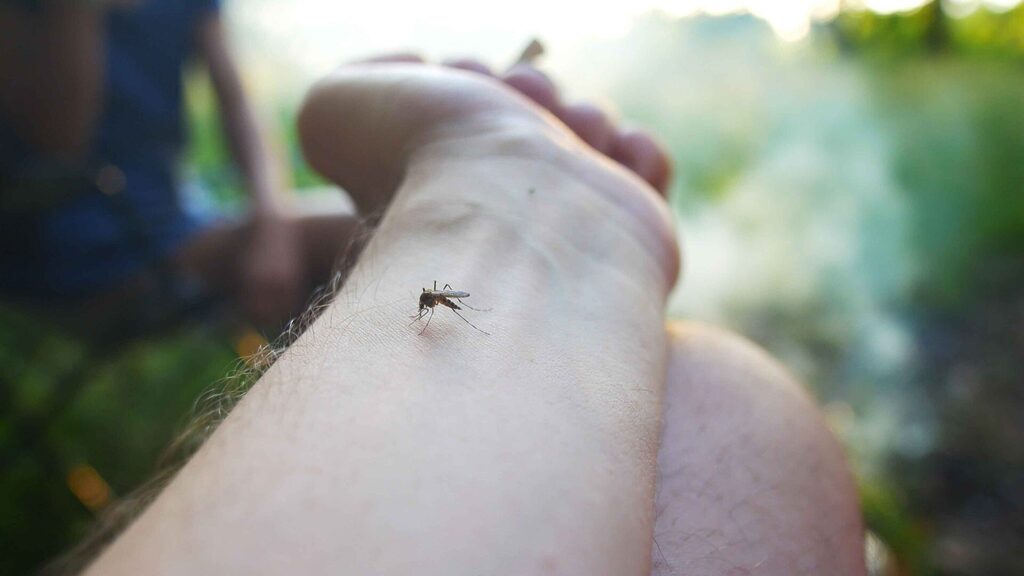
Health Concerns Linked to Mosquitoes in Vancouver
The British Columbia Centre for Disease Control (BCCDC) highlights concerns regarding mosquito-borne diseases, particularly West Nile Virus. While cases in B.C. are rare, prevention remains essential, as increased mosquito populations significantly elevate risks.
For official health recommendations, visit the BCCDC Mosquito Control page.
Additional Problems Caused by Clogged Gutters
Besides mosquito infestations, clogged gutters pose several other threats:
- Structural Damage: Water overflow due to clogs can lead to fascia and roof damage, potentially causing costly repairs.
- Foundation Damage: Overflowing water can pool around foundations, leading to basement flooding and structural weakening.
- Mold Growth: Continuous moisture in and around your home’s exterior promotes mold and mildew growth, further harming your property and family’s health.
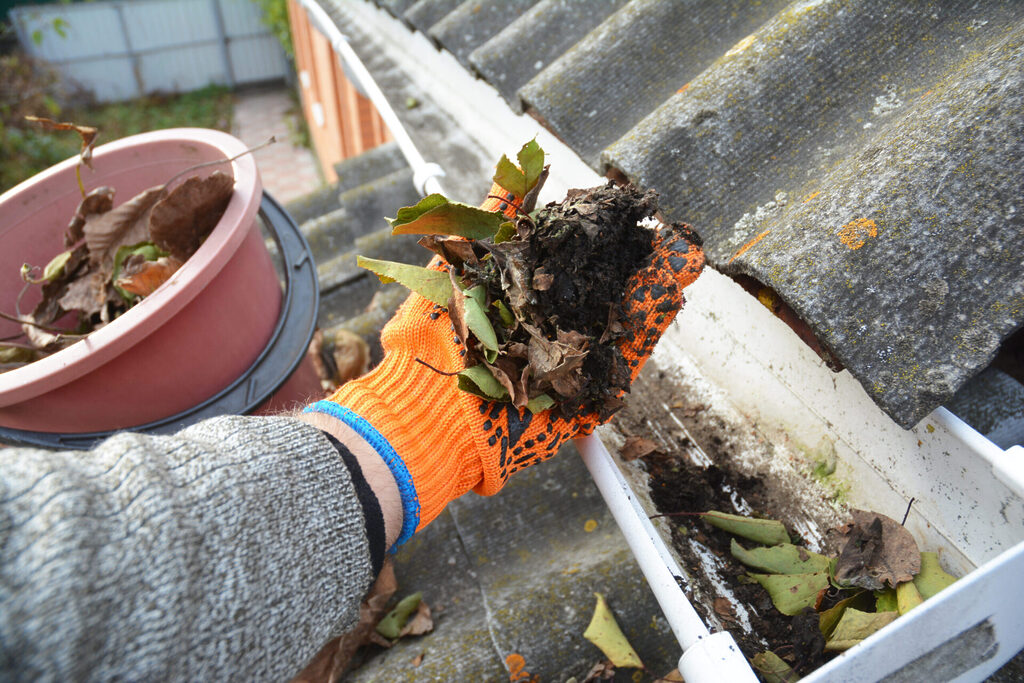
Preventative Measures Against Mosquito Breeding in Gutters
Here are proven ways to mitigate mosquito problems caused by clogged gutters:
Regular Gutter Cleaning
- Frequency: Gutters should be cleaned at least twice a year—once in spring and once in late autumn. In heavily wooded areas, quarterly cleanings might be necessary.
- Professional Cleaning: Engaging professionals, like All Coast Roofing, ensures thorough and safe gutter cleaning tips, especially for multi-storey homes.
Install Gutter Guards
- Gutter guards effectively prevent debris accumulation while allowing water to flow freely, significantly reducing the likelihood of stagnant water.
Proper Gutter Installation and Maintenance
- Ensure gutters have the appropriate slope (approximately 1/4 inch per 10 feet) for proper drainage.
- Regularly inspect gutters and downspouts after storms to identify and clear any blockages early.
Vancouver City Recommendations
The City of Vancouver explicitly advises residents on managing mosquito populations by eliminating standing water. Clearing gutters is specifically recommended to help mitigate this risk.
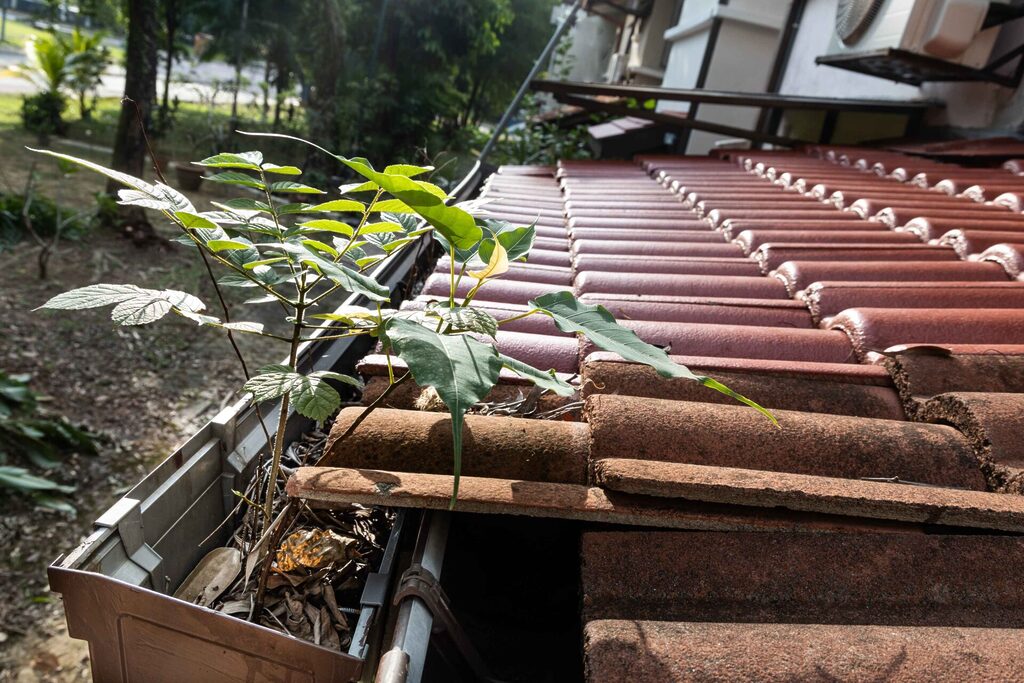
Signs Your Gutters May Be Clogged
- Visible plant growth or overflow during rain
- Sagging or visibly damaged gutters
- Pooling water around the home’s foundation
- Increased mosquito activity around your home
When to Seek Professional Help
For homeowners uncomfortable or unable to safely perform regular gutter maintenance, professional services like those provided by All Coast Roofing are invaluable. Professional roofers have the necessary tools and expertise to manage gutter issues efficiently, safely, and effectively.
Protect Your Home This Summer
Ignoring clogged gutters can quickly transform your home into a mosquito haven, significantly impacting your comfort and potentially your health. Proactive gutter management not only reduces mosquito populations but also safeguards your property from structural damage.
Ensure your summer remains enjoyable and mosquito-free. Trust the professionals at All Coast Roofing for regular gutter maintenance, gutter guard installations, and expert advice tailored to Vancouver’s unique climate and challenges.
Contact us today to book your gutter inspection or professional gutter cleaning and enjoy peace of mind all summer long.


